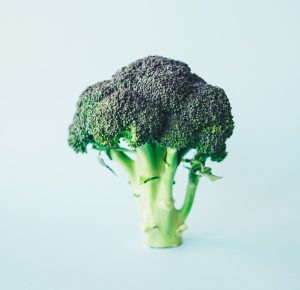 One topic that’s not the focus of conversation at parties or when good friends get together in Totowa, New Jersey, is fiber. Let’s face it, fiber just isn’t that exciting. However, fiber is extremely important when it comes to your diet, especially for weight loss and colon health. Most fruits, vegetables and whole grains are high in fiber, so it’s easy to increase it in your diet, just add a few more fruits and veggies or opt for whole grains.
One topic that’s not the focus of conversation at parties or when good friends get together in Totowa, New Jersey, is fiber. Let’s face it, fiber just isn’t that exciting. However, fiber is extremely important when it comes to your diet, especially for weight loss and colon health. Most fruits, vegetables and whole grains are high in fiber, so it’s easy to increase it in your diet, just add a few more fruits and veggies or opt for whole grains.
Not all fiber is the same.
There are two types of fiber and you need both. One type of fiber is soluble fiber and the other is insoluble. Soluble fiber becomes a gel as it absorbs water. It provides several things for the body. Soluble fiber makes you feel fuller longer, since it slows digestion. It helps keep your stool softer so you can pass it easier and also feeds the friendly microbes in the digestive system. It also helps slow the absorption of sugar in the intestines, so you don’t have spikes. Insoluble fiber adds bulk to stools, which also makes them easier to pass. It also increases the speed that food travels through the colon.
Identifying foods high in fiber is easy.
Just go to the produce section and you’ll find most of the foods high in fiber. Also, look at whole grains and seeds, such as flax seeds and psyllium husks. Many of the sources of insoluble fiber, like apples (when you eat the peel) and beans, are also good sources of soluble fiber. Top selections for soluble fiber include whole grains, beans, apples, broccoli and sweet potatoes. Top insoluble sources are beans, greens, celery, berries, oat bran. Always eat the whole fruit and vegetable and not just drink the juice, since it has no fiber. While juicing may provide a concentrated form of nutrients, most of the fiber is removed. Opt for a smoothie from the blender.
Increasing fiber in your diet also increases the nutrients you get.
There’s a lot of reasons you’ll boost your nutrition when you eat foods that naturally contain fiber. The main reason is that foods naturally high in fiber tend to be high in other important nutrients. It regulates the absorption of sugar that can reduce the number of friendly bacteria and feeds the beneficial microbes that break down the food to nutrients the body can use. Those same microbes also create enzymes that affect both your immune system and emotional health.
- Fiber fills you up, not just because it provides bulk and slows digestion, but also because it increases the satiety hormone and decreases the hunger hormone, which is the opposite of what sugar does.
- You’re better off getting fiber from fruits, vegetables and whole grains than from supplements. It’s easier to get too much fiber from supplements. Increasing your fiber too fast has negative consequences. It can cause both constipation and diarrhea, bloating mineral deficits and GERD.
- Don’t forget to increase your water intake if you’re increasing fiber, particularly if you’re not increasing it via fruits and vegetables. Soluble fiber requires water.
- As you age, you need less fiber, but it’s not a big difference. For women under 50, the amount required daily is 25 grams, but over 50 it’s 21 grams. Men under 50 require 8 fewer grams of fiber than those over 50.
For more information, contact us today at Prime Fitness
